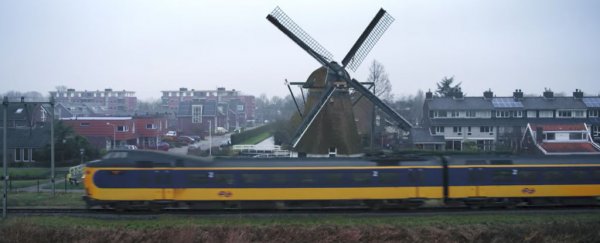Initially, trains in the Netherlands were set to run entirely on renewable energy by 2018. However, it seems officials have been able to beat that goal by an entire year.
As of the first of January this year, all public transport trains are being powered by renewable energy, namely from wind power.
The historical land of windmills is leading the charge in wind energy development. According to DutchNews.nl, there's currently a total of 2,200 wind turbines across the country.
These windmills generate enough power to sustain the equivalent of 2.4 million homes.
The trains alone consume about 1.2 billion kWh of electricity a year, which is roughly the total power consumption of every home in the country's largest city, Amsterdam.
The goal was accomplished in partnership with Eneco, a Dutch sustainable energy supplier.
According to Eneco account manager Michel Kerkhof, "What makes this contract and partnership unique is that a whole sector decreases its CO2 footprint enormously and sets an example for other sectors to follow."
Wind energy is rapidly taking over in the Netherlands, while other nations also work toward increasing their renewable energy production.
Back in August, Scotland reported that its wind farms were able to produce 106 percent of the country's entire energy needs.
Scotland has plans to be 100 percent zero-carbon by 2020. They are also investing in tidal power generation to help achieve that goal.
The United States is also making strides in its wind power generation.
According to the American Wind Energy Association (AWEA), there are more than 48,800 turbines operating in the United States, allowing for a total installed wind capacity of 73,992 MW in 2015.
While this dwarfs the number of turbines in other countries, the energy demand of such a large nation is significantly higher.
We are in the midst of a clean energy revolution. Some studies even suggest that countries as large as the US could be completely powered by renewable energy by 2050.
This article was originally published by Futurism. Read the original article.
